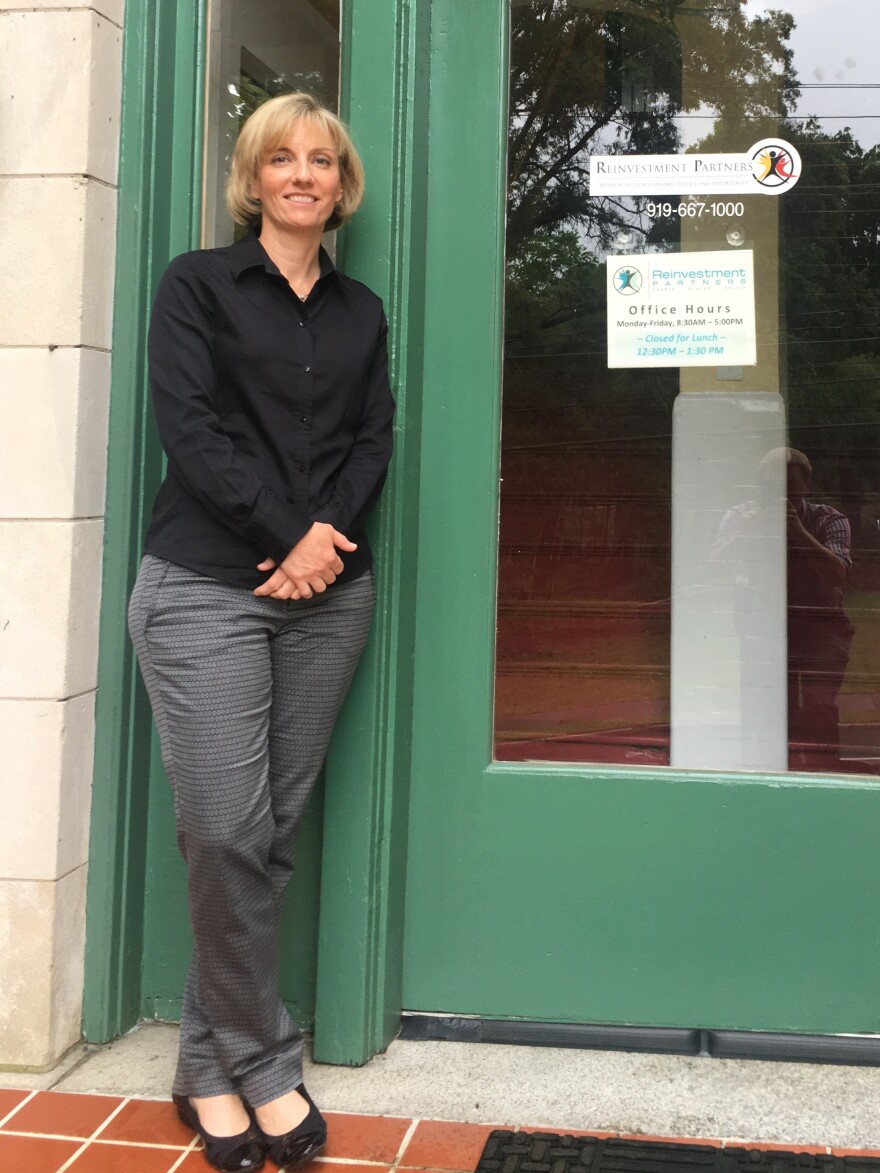With the buzzing sound of hair clippers in the background, Horace Robinson, the owner of Upper Cutz barber shop, laments that the last bank branch in his rural town closed.
"Now we’ve got to go 15, 20 miles to another branch in order just to get change," said Robinson, while shaping a client’s mustache and beard.
Upper Cutz operates in downtown Rich Square, a rural town 50 miles northeast of Rocky Mount. The inside of the shop feels much like any other barber shop. Five classic-style barber chairs line up in front of five large wall-mounted mirrors. Waiting patrons watch daytime television or shoot pool.
Turn left out of the barber shop and walk about 200 yards, however, and an empty building has many small business owners worried. There on Main Street, just north of the town's central intersection, sits an empty PNC bank branch. It was the last branch to operate in Rich Square. Now, business owners and residents must travel to one of the surrounding towns in order to walk in to a bank branch.
"I like to make deposits on a daily basis, sometimes two and three times a day," said Robinson. "Now that, you know, the bank is gone, you've got to hold off and wait on your deposit, or any kind of transaction that you need to deal with a bank."

Other business owners feel the same way. Vernon Moore recently opened Du Dobb's Restaurant and Grill and serves a "Big Burger Special" that costs $8.63 and includes fries and a sweet tea.
"I feel like it's stopping the growth of the town. It's really stopping the growth," Moore said. "We don't have any access to borrow money. People want to get established. They want to get to a bank where they can borrow money. We don't have anything here and then you've got to travel so far to try to get somewhere that you can try and borrow money. It's going to knock the economy. In this area it's really going to knock it."
Rich Square isn't alone. Across North Carolina, banks have shuttered branches in rural areas. From 2011 through 2015, North Carolina saw a net decrease of 310 branch locations, according to information from the Federal Deposit Insurance Corporation.
However, that doesn’t tell the full story. Of the 162 branches opened in the time, many clustered around the Triangle, Triad and Charlotte, while the 472 closures sprinkles around the mountains and swaths of eastern North Carolina, leaving banking deserts in many rural communities, according to FDIC data.

Since 2009, rural areas have lost nearly 15 percent of their bank branches, according to a Reinvestment Partners study.

"Some of these areas are kind of struggling the most to bring in new businesses and economic development. And so, when a bank leaves town, it's very symbolic for what it means for investment in that town, in that community," said Tanya Wolfram, Reinvestment Partners director of programs.
To be sure, banks are for-profit businesses and executives must answer to shareholders. In many rural communities, deposits have dwindled, putting branches in the red. In Rich Square, for example, deposits shrunk nearly in half from 2008 to 2016, according to FDIC.

Jim Hansen is the PNC regional president. He says the bank takes its role in the community seriously, and hopes it can serve customers everywhere. But local economies operate differently now than they used to, and banks don’t play the same role they once did.

"When car dealers started doing car loans and when people go online with their investments," he said. "These are all things that have been occurring over decades and a trend that have changed the way people receive and have a relationship with a financial services organization."
Still, he said he recognizes those changes don't make the sting any softer when the last branch leaves town. "But I fully empathize that when, you know, when all those things have been happening for many decades leads to the bank branch down the street closing, it's the reality."
In Rich Square, at least, there might be a silver lining. PNC donated the building to the town, which will use it as a Town Hall, as the current building needs significant repairs.
However, that makes it only less likely that another bank would set up shop in Rich Square, and that will leave an economic mark on the community.









